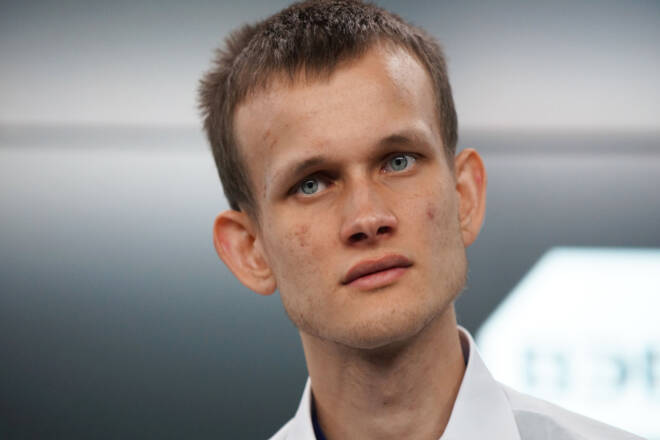Advertisement
Advertisement
Blockchain Transaction Fees Could go Down to $0.02, Says Vitalik Buterin
By:
The Ethereum co-founder shares his thoughts on transaction fees during Asia's largest blockchain event
Key Insights:
- Buterin believes that transaction costs could go down to $0.05 or even as low as $0.02.
- He attributes this to the “solid work happening” with rollups such as Optimism’s Layer 2 scaling solution for Ethereum.
- Buterin highlighted how scalability can enable and unlock entirely new classes of applications.
While attending Korea Blockchain Week (KBW), the co-founder of Ethereum, Vitalik Buterin has made comments indicating that the final hurdle to getting transactions down to fractions of a cent at scale is blockchain data compression.
Earlier this year, Buterin had stated that all Layer 2 transaction fees need to be under $0.05 to be “truly acceptable”, emphasising the importance of affordability.
Layer 2 Scaling Solutions
Buterin, who believes that the long-awaited Ethereum software Merge upgrade will make cryptocurrency payments more mainstream and accessible for a broader user base, has expressed that transaction costs “could go down to $0.05, or even maybe as low as $0.02”.
He attributes this to the “solid work happening” with rollups such as Optimism’s Layer 2 scaling solution for Ethereum (ETH), where transactions are bundled and compressed off-chain before being verified on the consensus layer. More specifically, Optimism helps users save on gas fees by rolling up batches of transactions and settling them on another blockchain using advanced data compression techniques – with receipts fed back to the main Ethereum blockchain.
Overall, introducing zero byte compression can get the size and cost of data in blockchain transactions down since the number of possible transactions that can be executed increases.
According to Buterin, rollups today generally charge “somewhere between $0.25 and sometimes $0.10” and in the future, rollups which offer improved efficiencies will lead to “cheaper and much more affordable” transaction fees.
Crypto Payment Use Cases
Buterin also touched upon Bitcoin (BTC), stating that its original use case was to provide a “peer-to-peer electronic cash system” that was cheaper than traditional payment methods. However, this was no longer the case in 2018, as he believes this is when adoption accelerated and blockchain transactions became too expensive.
In the co-founder’s view, BTC and other assets will soon be able to provide this use case once again as scaling solutions gradually bring down the costs to fractions of a cent.
According to Buterin, there are several different areas that will benefit from cheap crypto transaction rates. These include “lower income countries or places” where the existing financial system is “not very effective”, domain name system (DNS) servers and Web3 account management services.
Notably, more affordable transaction fees could improve financial mobility since it gives people access to vital payments structure over the internet. Buterin added:
“You need to actually send a transaction to create a DNS name, you need to actually send the transaction to recover your account, you need to actually send a transaction to meet some of these adaptations. If doing each of those operations costs like $11, then people are not going into it”.
Ultimately, scalability is at the forefront of blockchain research and development and Buterin highlighted how it can enable and unlock entirely new classes of applications, while still maintaining on-chain composability between smart contracts.
This comes as new data shows that Ethereum gas fees have recorded their lowest rates since 2020. In fact, Ethereum network fees dropped to 0.00086 ETH recently or $1.46 per transfer, a low not seen since December 2020.
About the Author
Mohadesa Najumiauthor
Mohadesa Najumi is a British writer who has worked within crypto, forex, financial technology, and the stock market industry. Mohadesa received her MSc in Political Science and International Relations at the University of Amsterdam.
Advertisement
